If you’re interested in ketogenic diets, there are a lot of things to consider. A ketogenic diet is a low-carb diet that turns the body into a fat burning machine. It has been proven to work well for some people, but not necessarily all. There are some supplements that can help you on a ketogenic diet.
After a sudden and severe bout of the flu in the past month, I decided to be more proactive in my health and start taking supplements. I was looking for something that would help me lose weight and, in general, help me stay healthy and improve my overall health and wellbeing. After some research, I settled on some supplements that, while not the most expensive, are also not the most common or proven.
There are so many supplements on the market selling the ketogenic diet. Gadgets, products, and pills that promise to help you lose weight and maintain a healthy body. But how do you know which ones are the best? As with most things in life, there is a lot of hype and not enough knowledge. So what is the truth about the best supplements for the ketogenic diet?
‘s goal is to make the keto diet more accessible for everyone, but we also want to challenge ourselves to become healthier every day. We take a few additional vitamins and consume specific nutrient rich meals (not super foods!) in addition to the usual keto supplements like electrolytes to help us reach optimum health.
What Supplements Should You Take on a Keto Diet?
This is a collection of suggestions based on our own study and experience. In the video below, we go through each supplement in detail.
Visit our keto supplements page for more information on the supplements we personally use.
Magnesium is number one.
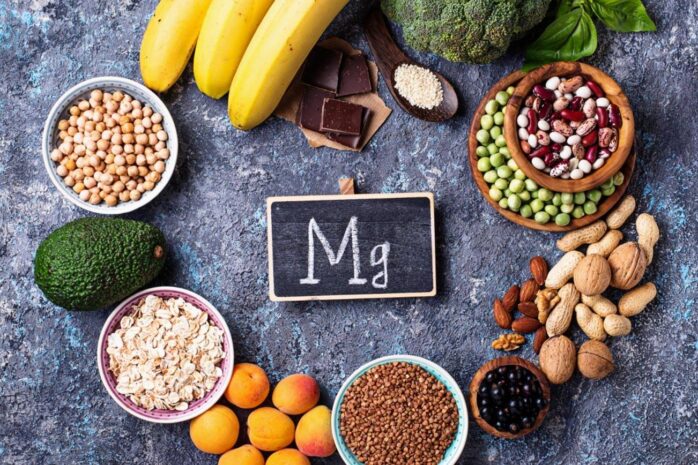
Magnesium is essential on a ketogenic diet, particularly when you first start since your body goes through an adaptation period in which it hangs on to less water, depleting magnesium. Add in the fact that a large proportion of the population is at danger of magnesium shortage, and you’ve got a recipe for disaster. Every day, we take 400mg of magnesium glycinate. Because of its excellent bioavailability, we chose magnesium glycinate.
Food will always be the greatest source of vitamins and minerals, so check out the chart below to see which foods have the most magnesium.
Join 150,000 people who have already gotten a FREE keto food list and fresh recipes every week!
Keep in mind that the “paper value” of vitamins and minerals in a meal does not always correspond to the quantity absorbed by your body. Animal foods, such as salmon, have a higher bioavailability of magnesium than pumpkin seeds and almonds.
Electrolytes (#2)
Magnesium is an electrolyte that may be included, however we felt it was essential to emphasize its significance for #1.
You retain significantly less water while you’re on a keto diet because your muscles are deprived of glucose. To feel your best, you should replace your body’s electrolytes, such as sodium, magnesium, and potassium, on a daily basis.
If you have brain fog, tiredness, muscular cramps, or other keto flu symptoms, you may not be receiving enough electrolytes. (Learn more about the keto flu here.) Electrolytes may be obtained via diet, but you can also use these keto supplements.
It’s worth noting that many of the meals rich in magnesium also include a lot of potassium. Electrolyte levels may be improved by include foods like spinach, avocado, pumpkin seeds, and salmon in your diet.
3. D3 and K2 vitamins
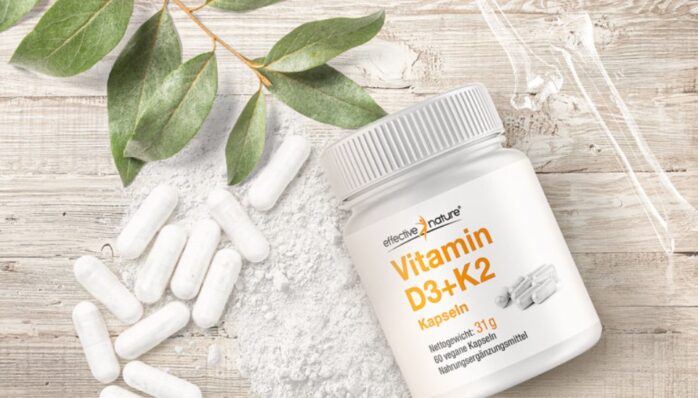
Many individuals are vitamin D deficient, and vitamin D insufficiency is becoming an epidemic in the United States, according to a Cureus research. If you can go outdoors throughout the day to receive some UVA rays, do so, but bear in mind that vitamin D cannot be produced in the skin in specific areas during the winter months.
We supplemented every day with the Live Wise Naturals brand. Vitamin D3 drops are also available at pharmacy and health shops.
4. Oil from Cod Liver
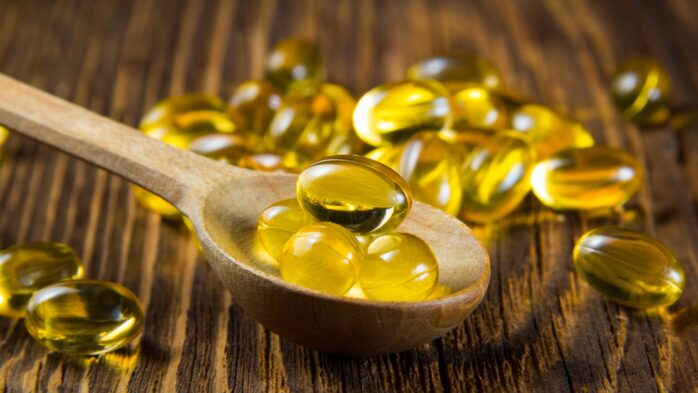
If you don’t consume a lot of seafood or organ meats, getting adequate omega-3s and vitamin A may be challenging. Cod liver oil may help you fill up both of these nutritional gaps. It includes a lot of high-quality omega 3 fats, including EPA and DHA, which have been shown to reduce inflammation and lower the risk of heart disease. Learn why it’s so crucial to incorporate omega 3s in a keto diet in our article on vital fatty acids.
Cod liver oil also contains sufficient quantities of the animal form of Vitamin A, which is difficult to get without eating organ meats. Cod liver oil has been used as a supplement for centuries and has shown to be quite effective.
MCT Oil (Medium Chain Triglycerides)
MCT oil is generally regarded as a must-have keto supplement, although it is not required. It’s a “good to have” supplement that may help you feel more energized and possibly improve your metabolism. It’s popular in bulletproof coffee because it turns to energy quicker than any other fat.
It will increase your ketones, but this does not imply that you will burn more fat. Because MCT Oil has minimal nutritional value, we prefer to use butter in our coffee, however MCT Oil Powder does give creaminess and taste to coffees and teas.
MCT Oil is useful for a short surge of energy, but it isn’t required for a ketogenic diet.
Whey Protein Powder, No. 6
Although we prefer to obtain our protein from whole foods, whey protein is a useful keto supplement for baking and fat bombs. For a more substantial breakfast, we sometimes add it to smoothies or coffee. Whey protein powder is often used in our Keto Protein Waffles and Macro Muffins.
Don’t be concerned about whey protein increasing your insulin levels. You should be OK as long as you combine it with fat and fiber. A glucose tester may always be used to see how it affects you.
Peptides of Collagen
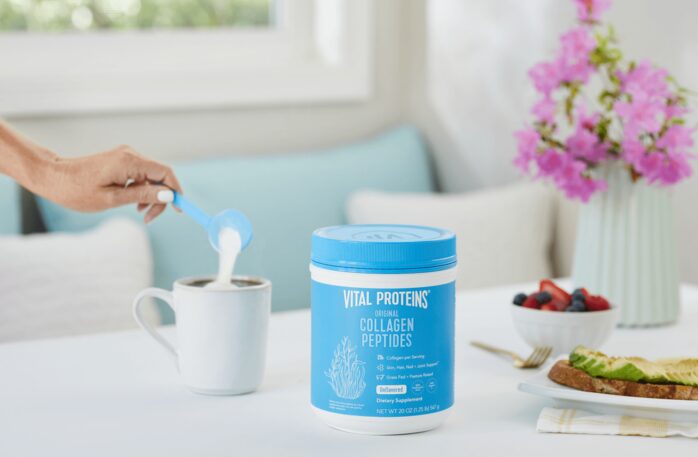
If you’ve been watching our videos on YouTube for a while, you’ll know that we didn’t always suggest collagen as a keto supplement, but we’ve now changed our thoughts. We discovered why and where collagen may be helpful after speaking with so many individuals in the fitness and nutrition world.
People nowadays consume mainly muscle meat rather than collagen-rich connective tissue found in animals’ skin, joints, and organs. To compensate for this, we prefer to take collagen supplements. Smoothies, coffee, and mug cakes all include it. 1g of collagen per 10g of protein from muscle meat is a healthy dosage.
Exogenous Ketones are a kind of ketone that occurs naturally in the body.
Some individuals believe that the higher the level of ketones in your body, the more fat you burn. This is untrue. A calorie deficit is required for weight reduction. Energy and electrolytes are the only things exogenous ketones provide.
Exogenous ketones are too expensive to use for the little amount of advantages they may offer. When you’re traveling and your nutrition and hydration levels are awry, this is the ideal time to utilize them. For the electrolytes, we sometimes take them after a night of drinking.
Any claims that they aid in weight reduction or a quicker adaptation to a keto diet have yet to be proven scientifically.
However, you should never spend more than $3-$4 a dish if you want to test some for yourself. Some businesses charge more than $6 each dish. Because they’re all utilizing ketones made by the same manufacturer, price isn’t an indication of quality in this instance. Perfect keto is what we suggest.
Fish Oil (nine)
The most essential factor to consider when selecting a fish oil supplement is its quality. By the time it reaches you, the cheap stuff you buy at GNC and Walmart will have oxidized. Find a reputable company that is open about where their fish oil comes from.
Omega 3 fatty acids, which are in limited supply in our contemporary diets, are abundant in fish oil. In fact, Americans consume more omega 6 fats than omega 3 fats by a factor of 20. A supplement containing fish oil or cod liver oil may assist to counteract this.
10. Take a multivitamin

Isn’t it strange that a tablet can provide you with all of the necessary nutrients you need to live every day?
We suggest obtaining your vitamins from food, but if you insist on taking a multivitamin, seek for one that gets its vitamins from whole foods. The majority of multivitamins include vitamins derived from plants with poor absorption rates or entirely manufactured vitamins.
If you’re just getting started with a better diet and know you’re not getting enough nutrients, a whole foods multivitamin may be beneficial. A multivitamin is likely to cause more damage than benefit if you consume a nutrient-dense whole-foods diet.
Supplements You (Most Likely) Do Not Require
Amino Acids, often known as BCAAs, are a kind of protein.
BCAAs (Branched-Chain Amino Acids) are a trio of important amino acids that include leucine, isoleucine, and valine. Because BCAAs are advertised as a muscle-building supplement, many prefer to take them before going to the gym.
The reality is that just by eating protein on a regular basis, our bodies have a pool of BCAAs or amino acids stored inside them. Instead than wasting money on BCAA powders, invest it on more protein that you can eat.
Powdered Greens
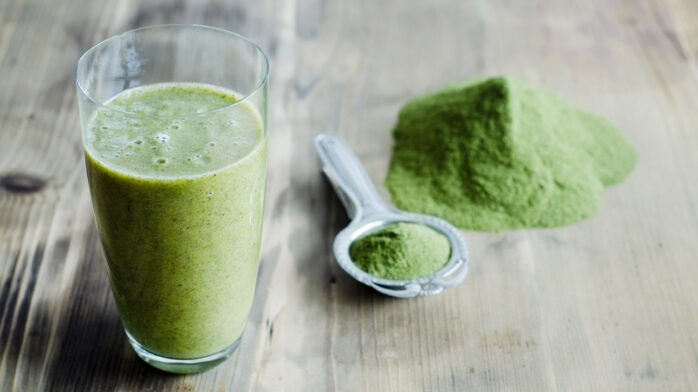
Vitamin bio-availability from plants is already poor when compared to animal products, therefore we expect it to be much lower when the plants are ground into a green powder. Greens powders are overpriced and unneeded. Simply consume your greens! Brussel Sprouts and Broccoli are two of our favorite vegetable sides.
You Definitely Don’t Need Keto Supplements
Don’t be misled by any supplement that claims to be “keto.” Superfoods are just marketing terms for expensive items that you don’t need to be healthy or successful on the keto diet.
Ketone Pills or MCT Oil
The maximum size of a tablet allowed by law is one gram, which means you’d have to take half a bottle of costly MCT capsules to consume enough fat. Don’t be fooled by this! Fill a bottle with your oil. Just because something is labeled as MCT Oil doesn’t imply it’s a healthy keto supplement.
Any supplement having the word “keto” in the name should be avoided.
We can virtually ensure that a supplement with the word “keto” in the name isn’t worth your time based on our own study and expertise. Supplements should not be linked to a specific diet; instead, they should be designed to improve the body’s function. If a business markets anything as keto, it’s most likely attempting to cash in on a trendy diet with a subpar product.
Supplements with fiber
If you want to have a high-volume, low-carb, low-calorie dinner on a keto diet, high-fiber veggies are ideal. (They’re also very tasty.) However, fiber isn’t required for success on the keto diet, which is why we don’t suggest drinking a fiber powder to meet an arbitrary fiber target.
Fat-Burner Supplements

If you’re thinking about using fat burners, take a step back and assess your attitude. Diet, not medications, is the key to long-term weight reduction success! Consider long-term happiness rather than short-term pleasure.
Detoxes
Don’t be swayed by the marketing! Your body detoxes itself and doesn’t need any special powders, teas, or juices to do it. Detoxes take advantage of the human mind’s flaws. We like binge-eating for weeks or months, then making up for it with a 10-day cleanse. Work on developing a long-term healthy eating attitude.
Foods Rich in Antioxidants
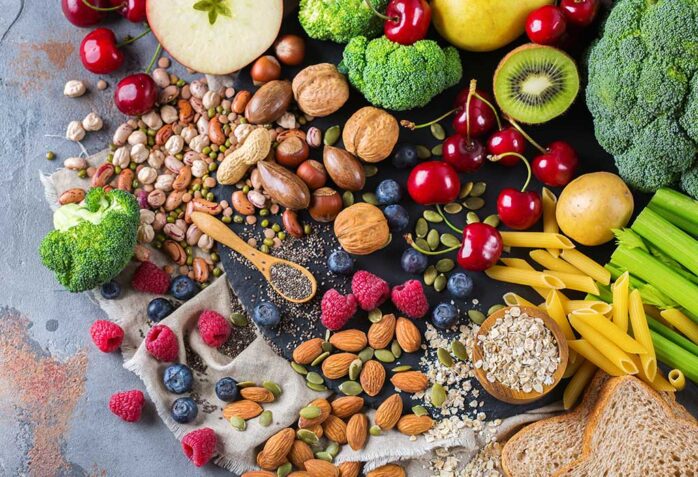
In recent years, the term “super food” has gained a lot of traction. Super foods are usually imported from other lands, boast incredible “healing properties,” and are prohibitively costly. They aren’t worth your time or money, in our view. All of the nutrients you need may be found in the grocery store’s butcher and vegetable departments.
In conclusion!
Any keto pills that seem to be too wonderful to be true are most likely false.
- On a keto diet, there are just a few vitamins that are really essential. The list of necessities includes electrolytes, vitamin D, and omega 3 fatty acids.
- Don’t be misled by the increasing number of ketogenic diet pills on the market.
- As much as possible, get your nutrients from whole meals, with pills as a backup.
- Don’t be fooled by cleanses, detoxes, or superfoods. You will see long-term success if you think long-term and sustainably.
Keto is a diet that is very popular nowadays. Although it is on the rise, it is still not clear how it works. Keto diets help you lose weight and also improve your energy levels. So, what is a keto diet? How does it work? The main principle of this diet is the restriction of carbohydrates. For the better functioning of your body, you need to limit your carbohydrate intake. It is recommended to eat only a few carbohydrates each day. It is also important to keep the good fats in the diet. Coconut oil, olive oil, and butter are good fats when eaten in moderate amounts.. Read more about best keto supplements 2024 and let us know what you think.




